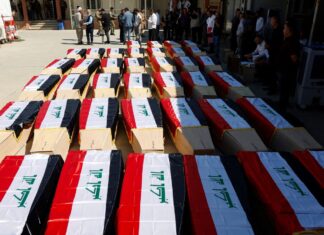The Armenian Patriarchate of Jerusalem is in a difficult position and is beset on all sides. Both Israelis and Arabs have their eyes on the valuable real estate owned by the patriarchate. The local Armenian population has declined over the years, weakening the local Armenian community.
Controversy is no stranger to the patriarchate. There have been a number of infamous cases of corruption and theft in the past in which high level clergymen and even patriarchs have been implicated. At the present time, a hotel deal on strategically located property is leading to various accusations in the Armenian media (for background, see the accompanying article “Jerusalem Armenian Patriarchate Official Comments on New Land Lease” in the current issue of the Mirror-Spectator).
Lack of transparency and mistrust due to cases in the past can only be rectified by providing more of the details of the 99-year lease signed this summer of the land of Goveroun Bardez for the construction of a fancy hotel. Without such information, it becomes difficult to interpret the value or danger of such a contract. Critics rely on anonymous sources whose truthfulness cannot be verified. Supposedly these sources fear retribution if they speak out openly. On the other side, the patriarchate only can give assurances back by limited concrete information.
The autonomous status of the patriarchate and the Brotherhood of Sts. James which runs it at times may have historically helped it survive, but it also caused difficulties over the centuries. Even in Ottoman times, the Armenian National Assembly in Constantinople had to send various missions to figure out what was taking place in Jerusalem and address various crises. Today, with the diminishment of the strength of the local community, it is more important than ever that the patriarchate forge strong ties with the other institutions of the Church of Armenia as well as with Armenian communities in the diaspora that could play an important role in supporting it.
Of course, this situation is not something unique to this one institution, but is a broader problem in the Armenian world and beyond. Lack of confidence in the institutions and leaders of the Armenian diaspora, and the Armenian government, for that matter, can only be restored through a more open approach along with more rigorous accounting of revenues and expenditures.









